• WMP •
Course Faculty
LEAD TEACHING FACULTY
THE COURSE FACULTY INCLUDE LEAD TEACHERS AND GUEST TEACHERS
(IN ALPHABETICAL ORDER)
(IN ALPHABETICAL ORDER)
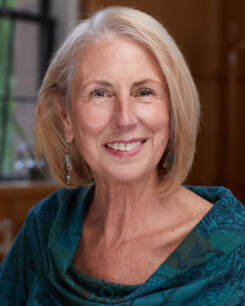
Patricia Shehan Campbell is Donald E. Peterson Professor of Music at the University of Washington, where she teaches courses at the interface of education and ethnomusicology. A singer and pianist, with studies of the Japanese koto, Celtic harp, Karnatic Indian mridangam, and Bulgarian and Wagogo song, she has lectured internationally on the pedagogy of world music and children’s musical cultures. She is the author of Lessons from the World (1991), Music in Cultural Context (1996), Songs in Their Heads (1998, 2010), Teaching Music Globally (2004), Musician and Teacher (2008), Music, Education, and Diversity: Bridging Cultures and Communities (2018), co-author of Music in Childhood (2017, 4th edition) and Redefining Music Studies in an Age of Change (2017), co-editor of the Global Music Series and the Oxford Handbook on Children’s Musical Cultures (2013). Campbell is recipient of the 2017 Koizumi Prize and the 2012 Taiji Award for work on the preservation of traditional music through educational practice, and was designated the Senior Researcher in Music Education of the National Association for Music Education in 2002. Chair of the Advisory Board of Smithsonian Folkways and educational consultant in the repatriation of Alan Lomax recordings to the American South, she is editor of a forthcoming series of six volumes on World Music Pedagogy (2018) for practicing and prospective teachers.
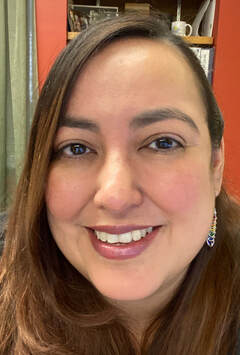
Amanda Christina Soto is the Associate Professor of Music Education at the Texas State University where she teaches undergraduate and graduate music education courses and in charge of the music education student teachers. Prior to moving to the Central Texas area, Soto taught at the University of Idaho, as a middle school band director in South Texas, and taught general music to children in Kindergarten through sixth grade within the Seattle Public Schools.
Her research interests include cultural diversity in music education, bimusical sensibilities of children, world music pedagogy, children’s musical culture, and the study of regional musics of South Texas and Mexican music. Soto holds publications in Music Educators Journal, Journal of Research in Music Education, the International Journal of Ethnomusicology Studies of World Music and Dance Education, and the newest edition of Multicultural Perspectives in Music Education. Soto has created lesson plans on traditional Mexican music and Conjunto music that appear on the Smithsonian Folkways website.
Dr. Soto has conducted clinical workshops in various musical genres of Mexico, regional Latin musical styles in the U.S., and promoted the use of Smithsonian Folkways archive in the public school classroom. She has presented her research at MENC, the College of Music Society, the Society for Ethnomusicology, the Asia-Pacific Symposium on Music Education Research, the International Society for Music Education, the International Conference on Cultural Diversity in Music Education and the College Music Society. She has created student and teacher workshops for the American Sabor: Latinos in U.S. Popular Music exhibit at the Experience Music Project/Science Fiction Museum and Hall of Fame in Seattle, WA and for the PBS documentary, Latino Music USA.
Her research interests include cultural diversity in music education, bimusical sensibilities of children, world music pedagogy, children’s musical culture, and the study of regional musics of South Texas and Mexican music. Soto holds publications in Music Educators Journal, Journal of Research in Music Education, the International Journal of Ethnomusicology Studies of World Music and Dance Education, and the newest edition of Multicultural Perspectives in Music Education. Soto has created lesson plans on traditional Mexican music and Conjunto music that appear on the Smithsonian Folkways website.
Dr. Soto has conducted clinical workshops in various musical genres of Mexico, regional Latin musical styles in the U.S., and promoted the use of Smithsonian Folkways archive in the public school classroom. She has presented her research at MENC, the College of Music Society, the Society for Ethnomusicology, the Asia-Pacific Symposium on Music Education Research, the International Society for Music Education, the International Conference on Cultural Diversity in Music Education and the College Music Society. She has created student and teacher workshops for the American Sabor: Latinos in U.S. Popular Music exhibit at the Experience Music Project/Science Fiction Museum and Hall of Fame in Seattle, WA and for the PBS documentary, Latino Music USA.
Guest Teaching Faculty (in alphabetical order)
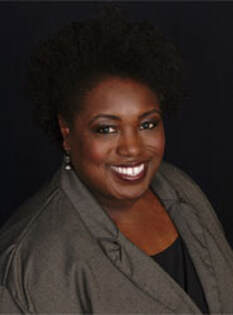
Loneka Battiste is Assistant Professor of Music Education at the University of Tennessee. Her duties include teaching elementary general and middle school choral methods and teaching graduate courses in music education. She has presented several papers and sessions at local and national conferences and symposiums and is a frequent clinician and guest conductor for elementary and middle school choirs. As a former member of the Moses Hogan Chorale and the Moses Hogan Singers, she completed her dissertation entitled “ ‘Music Down in My Soul’: Achieving a Sound Ideal for Moses Hogan Spirituals” in 2014. She currently serves as Co-Chair Elect of the Education Section for the Society of Ethnomusicology. Her research interests include social justice in music education and culturally responsive teaching in music education.
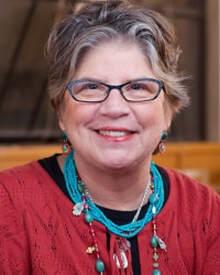
Marisol Berríos-Miranda has a PhD in ethnomusicology, but her first education came from a childhood in her native Puerto Rico, where she was soaked in music. "I studied music academically, but the way I learned music - who sings well, what had a good rhythm - was sitting down and listening with my dad." She also credits her mother, Juanita Miranda-Berrios. "She is the encyclopedia. She knows everything about Latin rhythm and dance."
Marisol teaches in layers, one rhythm at a time. She recently completed a residency at Alki Elementary School, teaching Latin rhythms to 120 fourth and fifth graders, which culminated in a concert. "They were the best!" she says, "curious, engaged, respectful. 30 years ago, when I came to the United States and was teaching people the Clave, it was almost impossible for them to get it: the side-to-side movements that accompany the rhythm can be difficult. But these kids nowadays hear more Latin and African rhythms at a younger age, they are more exposed to world rhythms." (Clave is the Spanish word for keystone or key. A Clave rhythm is a repeated five-note pattern.)
"The interlocking rhythms and call-response singing of Latin Caribbean music have a special power to generate participation," says Marisol, who used the fellowship to share her knowledge and experience with Eckstein Middle School, taking young jazz musicians to a deeper level of Afro-Caribbean playing. She is also deeply involved with the Seattle Fandango project. "People need to get back to playing music themselves," she says, "all the generations: mamas with babies, teenagers, elders. We are community building through music making. And that's amazing."
As co-curator of the Smithsonian Traveling Exhibit American Sabor, Marisol developed, in collaboration with Shannon Dudley and Michelle Habell-Pallán, a classroom curriculum, educator resources, and guided listening programs. The exhibit highlights the contributions of Latinos to popular music in the United States since World War II.
"One of my purposes is to share the joy and happiness of music and dancing," says Marisol. "This is my way to free the creative impulses in our children, so they have such intense joy in the learning and doing." Quoting Nietzsche, she says, "We should consider every day lost on which we have not danced at least once."
Marisol teaches in layers, one rhythm at a time. She recently completed a residency at Alki Elementary School, teaching Latin rhythms to 120 fourth and fifth graders, which culminated in a concert. "They were the best!" she says, "curious, engaged, respectful. 30 years ago, when I came to the United States and was teaching people the Clave, it was almost impossible for them to get it: the side-to-side movements that accompany the rhythm can be difficult. But these kids nowadays hear more Latin and African rhythms at a younger age, they are more exposed to world rhythms." (Clave is the Spanish word for keystone or key. A Clave rhythm is a repeated five-note pattern.)
"The interlocking rhythms and call-response singing of Latin Caribbean music have a special power to generate participation," says Marisol, who used the fellowship to share her knowledge and experience with Eckstein Middle School, taking young jazz musicians to a deeper level of Afro-Caribbean playing. She is also deeply involved with the Seattle Fandango project. "People need to get back to playing music themselves," she says, "all the generations: mamas with babies, teenagers, elders. We are community building through music making. And that's amazing."
As co-curator of the Smithsonian Traveling Exhibit American Sabor, Marisol developed, in collaboration with Shannon Dudley and Michelle Habell-Pallán, a classroom curriculum, educator resources, and guided listening programs. The exhibit highlights the contributions of Latinos to popular music in the United States since World War II.
"One of my purposes is to share the joy and happiness of music and dancing," says Marisol. "This is my way to free the creative impulses in our children, so they have such intense joy in the learning and doing." Quoting Nietzsche, she says, "We should consider every day lost on which we have not danced at least once."
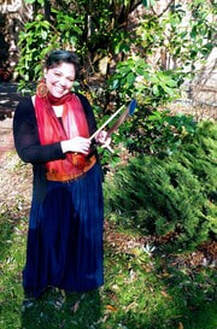
Juliana Cantarelli Vita is a Ph.D. Candidate in Music Education with an emphasis in Ethnomusicology at the University of Washington, and a General Music Teacher at Laurelhurst Elementary School in Seattle, WA. Juliana has completed Orff Schulwerk and Kodaly Pedagogy levels and worked at the Smithsonian Folkways World Music Pedagogy Course at West Virginia University (2015-2020), and at the University of Washington (2018-2020). She has been involved with Nação do Maracatu Porto Rico since 2010, when she developed collaborative research about teaching and learning practices within maracatu traditions, and is the founder and music director of Baque Maré, Seattle's Maracatu group.
Blending her interests in music education and ethnomusicology, Juliana has presented papers and given clinics at several national and international conferences in North America, South America, and Europe. As a researcher, she has published papers at Orff Echo (Winter 2017) and Perspectives: Journal of the Early Childhood Music & Movement Association (Volume 13:1, 2018), with a chapter on children's communities of practice in the maracatu de baque virado tradition on the upcoming Oxford Handbook of Early Childhood Learning and Development. As a clinician, Juliana has given more than 50 workshops in the United States, Brazil, and Europe.
Blending her interests in music education and ethnomusicology, Juliana has presented papers and given clinics at several national and international conferences in North America, South America, and Europe. As a researcher, she has published papers at Orff Echo (Winter 2017) and Perspectives: Journal of the Early Childhood Music & Movement Association (Volume 13:1, 2018), with a chapter on children's communities of practice in the maracatu de baque virado tradition on the upcoming Oxford Handbook of Early Childhood Learning and Development. As a clinician, Juliana has given more than 50 workshops in the United States, Brazil, and Europe.
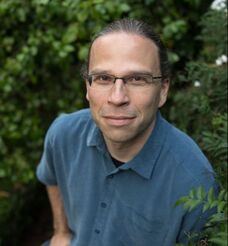
John-Carlos Perea is an electric bassist, singer, cedar flutist, ethnomusicologist, and associate professor of American Indian Studies in the College of Ethnic Studies at San Francisco State University. He is author of Intertribal Native American Music in the United States and Music and Modernity Among First Peoples of North America, and with research interests in jazz and improvised music, and urban American Indian lived experiences and cultural productions.
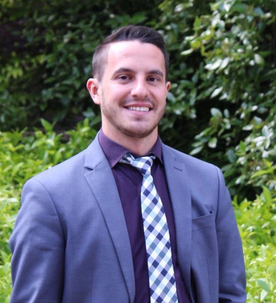
William J. Coppola is assistant professor of music education at the University of North Texas. He is co-author of World Music Pedagogy, Vol. IV: Instrumental Music Education (2018) and World Music Pedagogy, Vol. VII: World Music in Higher Education (2020). His select publications have appeared in the Journal of Research in Music Education; Action, Criticism, and Theory for Music Education; Psychology of Music; Music Education Research; and others. He is a certified Smithsonian Folkways World Music Pedagogy and a Kodály educator, and holds degrees from the University of Washington, New York University, and Hofstra University. He was previously an elementary music director for New York City Public Schools.
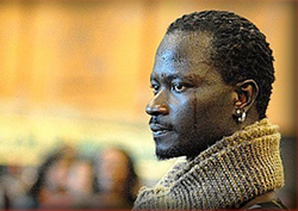
Thione Diop, percussionist from Senegal, West Africa, is widely recognized for his powerfully expressive Djembe performances. He is descended from an ancestral line of Griot drummers in Senegal, West Africa, and is a master of the djembe, sabar, tama, and djun djun.
In 1998, Thione moved to Seattle to teach and perform; a year later he formed Yeke Yeke, a percussion ensemble that has performed the traditional rhythms of West Africa to delighted audiences for the last ten years. Thione is also responsible for some incredible regional events, such as the annual Spirit of West Africa Festival and Kasumai Africa, offering the Pacific Northwest audiences a chance to enjoy immersive experiences in African music, dance, and culture.
Thione has shared the stage with such noteworthy musicians as Poncho Sanchez, Alpha Blondy, Prince Diabate and Max Romeo. Thione Diop and his group Yeke Yeke are well known from their many regional appearances in the U.S. and Canadian Northwest. In Senegal, Thione has collaborated with renowned griot artists Babou Laye Cissokho; master Kora player, Thierno Kouyate; Orchestra Baobab saxophonist, Thierno Ba; Xalam master, Samba Ndoc Tama player for Cheikh Lo and singer Abdoulaye N’Diaye on a number of tracks.
A track from one of his most recent collaborations, Samba Griot, co-produced by Thione and Lynette Wich, is featured in the film The Heartbreak Kid. The track “Lamba” from Jammu Aduna is featured in the documentary “End of Poverty” by Philip Diaz. Additionally, various tracks from Kham Saa Thiosanne were used in the Spanish documentary film “Metropoluz” by Eduardo Torres. Thione is co-producing a documentary film, Modern Day Griots with director Malika Weeden.
In 1998, Thione moved to Seattle to teach and perform; a year later he formed Yeke Yeke, a percussion ensemble that has performed the traditional rhythms of West Africa to delighted audiences for the last ten years. Thione is also responsible for some incredible regional events, such as the annual Spirit of West Africa Festival and Kasumai Africa, offering the Pacific Northwest audiences a chance to enjoy immersive experiences in African music, dance, and culture.
Thione has shared the stage with such noteworthy musicians as Poncho Sanchez, Alpha Blondy, Prince Diabate and Max Romeo. Thione Diop and his group Yeke Yeke are well known from their many regional appearances in the U.S. and Canadian Northwest. In Senegal, Thione has collaborated with renowned griot artists Babou Laye Cissokho; master Kora player, Thierno Kouyate; Orchestra Baobab saxophonist, Thierno Ba; Xalam master, Samba Ndoc Tama player for Cheikh Lo and singer Abdoulaye N’Diaye on a number of tracks.
A track from one of his most recent collaborations, Samba Griot, co-produced by Thione and Lynette Wich, is featured in the film The Heartbreak Kid. The track “Lamba” from Jammu Aduna is featured in the documentary “End of Poverty” by Philip Diaz. Additionally, various tracks from Kham Saa Thiosanne were used in the Spanish documentary film “Metropoluz” by Eduardo Torres. Thione is co-producing a documentary film, Modern Day Griots with director Malika Weeden.
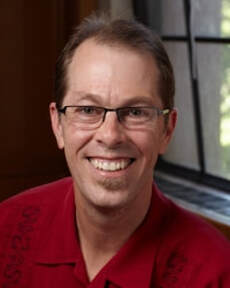
Shannon Dudley, associate professor of Ethnomusicology, holds a PhD from the University of California at Berkeley. He teaches courses that include music of Latin America and the Caribbean, American popular music, Music and Community, Comparative Musicianship and Analysis, and graduate seminars in Ethnomusicology. He also directs the UW steeelband.
Dudley has conducted research in Trinidad and Tobago, focusing on the history and music of steelbands. More recent research projects include the music of El Gran Combo, and salsa music in Puerto Rico generally, as well as Latino contributions to American popular music. His theoretical interests include nationalism, transculturation, and participatory music practices.
His publications include Carnival Music in Trinidad (Oxford University Press, 2004), as well as Music From Behind the Bridge (Oxford University Press, 2008), a history of Trinidad steelband music, and numerous other articles on Caribbean music, including and "Judging by the Beat: Calypso vs. Soca," Ethnomusicology (1996), and “El Gran Combo, Cortijo, and the Musical Geography of Cangrejos/Santurce, Puerto Rico,” Journal of Caribbean Studies (2008).
Dudley is one of the curators (along with his wife, Marisol Berríos-Miranda, and Michelle Habell-Pallan) for American Sabor: Latinos in U.S. Popular Music, a bilingual museum exhibit that opened at the Experience Music Project in Seattle in 2008. American Sabor was exhibited in museums in several U.S. cities, culminating in a 3-month run at the International Gallery of the Smithsonian Institution in summer 2011. He is also guest curator for a smaller version of the exhibit prepared by the Smithsonian Institution Travelling Exhibit Service (SITES), and for their website (http://www.americansabor.org), and is currently working on a book manuscript.
In Seattle Dudley performs on steel pan with several local bands, and participates in the Seattle Fandango Project (SFP), a community music group that practices son jarocho. He has helped to bring visiting artists from Mexico to the University of Washington (including Son de Madera and Laura Rebolloso) and to promote active collaboration between community arts activists and university individuals and programs.
Dudley has conducted research in Trinidad and Tobago, focusing on the history and music of steelbands. More recent research projects include the music of El Gran Combo, and salsa music in Puerto Rico generally, as well as Latino contributions to American popular music. His theoretical interests include nationalism, transculturation, and participatory music practices.
His publications include Carnival Music in Trinidad (Oxford University Press, 2004), as well as Music From Behind the Bridge (Oxford University Press, 2008), a history of Trinidad steelband music, and numerous other articles on Caribbean music, including and "Judging by the Beat: Calypso vs. Soca," Ethnomusicology (1996), and “El Gran Combo, Cortijo, and the Musical Geography of Cangrejos/Santurce, Puerto Rico,” Journal of Caribbean Studies (2008).
Dudley is one of the curators (along with his wife, Marisol Berríos-Miranda, and Michelle Habell-Pallan) for American Sabor: Latinos in U.S. Popular Music, a bilingual museum exhibit that opened at the Experience Music Project in Seattle in 2008. American Sabor was exhibited in museums in several U.S. cities, culminating in a 3-month run at the International Gallery of the Smithsonian Institution in summer 2011. He is also guest curator for a smaller version of the exhibit prepared by the Smithsonian Institution Travelling Exhibit Service (SITES), and for their website (http://www.americansabor.org), and is currently working on a book manuscript.
In Seattle Dudley performs on steel pan with several local bands, and participates in the Seattle Fandango Project (SFP), a community music group that practices son jarocho. He has helped to bring visiting artists from Mexico to the University of Washington (including Son de Madera and Laura Rebolloso) and to promote active collaboration between community arts activists and university individuals and programs.
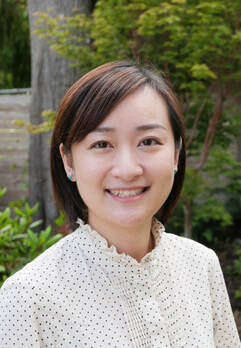
Guo, Ke (郭可) is a PhD student in music education with a cognate in ethnomusicology at the University of Washington, school of music. She was born in Wuhan, China, and studied applied mathematics at UCLA for her B.S. degree. She then obtained an M.S. in management science & engineering from Stanford University and an M.M. in music education from San José State University. Before pivoting into music education, she worked in the consulting and tech industry.
Her research in world music education and ethnomusicology has covered topics in both Chinese music and Sephardic music. As a vocalist and multi-instrumentalist, she is also active in concerts, and has offered individual concerts as well as collaborative concerts in America and Europe. Currently focusing on the topic of worldwide transmission and acquisition of Sephardic music both within and outside of the Sephardic community, she is excited to conduct future field research as a music educator and an ethnomusicologist in the Iberian Peninsula, Turkey, and other countries around the Mediterranean sea.
Her research in world music education and ethnomusicology has covered topics in both Chinese music and Sephardic music. As a vocalist and multi-instrumentalist, she is also active in concerts, and has offered individual concerts as well as collaborative concerts in America and Europe. Currently focusing on the topic of worldwide transmission and acquisition of Sephardic music both within and outside of the Sephardic community, she is excited to conduct future field research as a music educator and an ethnomusicologist in the Iberian Peninsula, Turkey, and other countries around the Mediterranean sea.
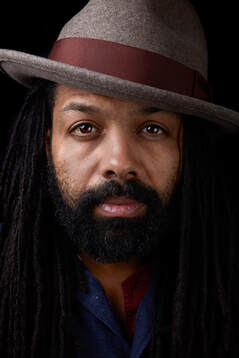
Benjamin Hunter is an award winning multi-instrumentalist, composer, community activist, social entrepreneur, and educator. Benjamin’s music explores the intersections of music & art, community, policy, and culture. In 2016, his America roots duo with Joe Seamons took first place in the International Blues Competition. In 2018, Benjamin composed the music for the critically acclaimed production, Black Bois. With his primary instrument the violin, he is as comfortable playing classical as he is blues and jazz. City Arts Magazine wrote, “ The music he plays not only spans an array of genres but a huge swath of history.” Living Blues magazine wrote, “An unbridled freedom and genre emancipation is evident in Ben Hunter’s music, yet the deep blues are a cornerstone of his style”. Benjamin Hunter is the founder and director of Community Arts Create, co-founder of the Hillman City Collaboratory, co-founder of Black & Tan Hall, sits on the Seattle Music Commission, and is a teaching artist for JazzEd as well as festivals around the world. Benjamin is a 2020/2021 Artist-in-Residence at On The Boards, and is a 2020 Artist Trust Fellowship Awards recipient.
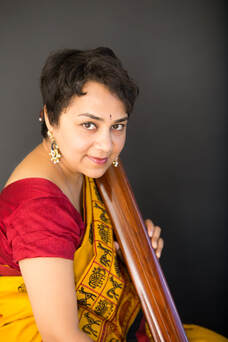
Srivani Jade was introduced to music at the age of four by her father Bhavani Prasad Jade and uncle Raghavendra Tilwalli. She studied Khayal initially with Dr. Sharad Gadre in the Gwalior style (2002-03), and since 2006, with Pandit Parameshwar Hegde in the Kirana style. Srivani also sings an eclectic repertoire of light classical music, such as,Thumri-dadra, Tappa and Bhajans. She concertizes regularly both in India and North America, and has performed in major music festivals such as the Sawai Gandharv Bhimsen Mahotsav (2014) and Devanandan Ubhayaker Yuva Sangeet Utsav (2009). She has five solo albums to her credit, and several grants, artist residencies and awards--including the Washington State Arts Commission Fellowship Award (2009). She has lent her voice and music to independent films such as Tapasya (2003), Siddhanto (2014) and stage productions such as Indian Ink (Sound Theater Company). She is an auditioned artist with All India Radio, and Visiting Artist at the University of Washington's School of Music.
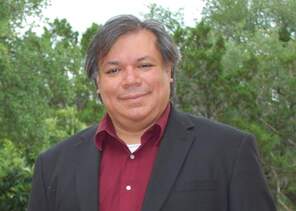
John A. Lopez is Professor and the Founder and Director of the Latin Music Studies area at Texas State University. Starting at a young age, John A. Lopez was exposed to some of the best in Latin music, his father Aruto Lopez was the founder and director of one of the best mariachis to ever come out of San Antonio, Mariachi Chapultepec. His mother, Beatriz Llamas, La Paloma del Norte was a famous mariachi and conjunto singer; she has been inducted into the tejano and conjunto halls of fame. Lopez began his musical career as a percussionist at Thomas Edison High School in San Antonio, TX and upon graduating attended Texas State University as a Music Major. He eventually received a MM in Percussion Performance and Composition from Texas State in 1992. Shortly after graduating he began working as a part-time faculty member at Texas State in charge of marching percussion; however, he quickly started to create classes in the music department that highlighted his passion for Latin music. This inevitably evolved into the expansion of Latin music at Texas State. In 2003 Mr. Lopez became a tenured Associate-Professor as well as the founder and coordinator of the Latin Music Studies area. Starting with the creation of Salsa del Rio in 1995, the Latin Music Studies area has grown to include Mariachi Nueva Generación, Mariachi Lince De Oro, Orquesta del Rio and Mariachi Infantil, the youth mariachi program. The total number of students involved in these programs has grown to over 100.
As a performer, Mr. Lopez is very active in the Salsa music community playing Latin percussion with some of the best groups in the Central Texas area. Some of the bands he has played with include La Predilecta, Naningo, Tony Guerrero, Orquesta Tradicion, El Tumbao, Mochate, Son Playado, and Colao. He also served as Music Director for The Mambo Kings of San Antonio during its existence. Under his direction, the Salsa and Mariachi ensembles have gained much recognition throughout the state, as well as nationally and internationally through several performance opportunities. Salsa del Rio has performed internationally at the Montreaux Jazz Festival, Brienz Jazz Festival, Carnaval de Nice, Cancun and Mexico City, Mexico. Nationally, they have performed at the prestigious Notre Dame Jazz Festival where they have won several awards. Mariachi Nueva Generación has quickly risen as one of the best university Mariachi ensembles in the state of Texas. They compete regularly at the Mariachi Vargas Extravaganza held annually in December in San Antonio, TX, where they have won first place seven out of the last nine years that they have competed. Internationally, Mariachi Nueva Generación has toured Europe alongside the Texas State University Symphony Orchestra. Most recently Mariachi Nueva Generación and Salsa del Rio toured and performed in Chile (2012). In the summer of 2016 both ensembles showcased their talents on a performance and recruitment tour of the West Coast with stops in Las Vegas, NV, Los Angeles, Seaside, Salinas, and El Cerrito, CA.
As a performer, Mr. Lopez is very active in the Salsa music community playing Latin percussion with some of the best groups in the Central Texas area. Some of the bands he has played with include La Predilecta, Naningo, Tony Guerrero, Orquesta Tradicion, El Tumbao, Mochate, Son Playado, and Colao. He also served as Music Director for The Mambo Kings of San Antonio during its existence. Under his direction, the Salsa and Mariachi ensembles have gained much recognition throughout the state, as well as nationally and internationally through several performance opportunities. Salsa del Rio has performed internationally at the Montreaux Jazz Festival, Brienz Jazz Festival, Carnaval de Nice, Cancun and Mexico City, Mexico. Nationally, they have performed at the prestigious Notre Dame Jazz Festival where they have won several awards. Mariachi Nueva Generación has quickly risen as one of the best university Mariachi ensembles in the state of Texas. They compete regularly at the Mariachi Vargas Extravaganza held annually in December in San Antonio, TX, where they have won first place seven out of the last nine years that they have competed. Internationally, Mariachi Nueva Generación has toured Europe alongside the Texas State University Symphony Orchestra. Most recently Mariachi Nueva Generación and Salsa del Rio toured and performed in Chile (2012). In the summer of 2016 both ensembles showcased their talents on a performance and recruitment tour of the West Coast with stops in Las Vegas, NV, Los Angeles, Seaside, Salinas, and El Cerrito, CA.
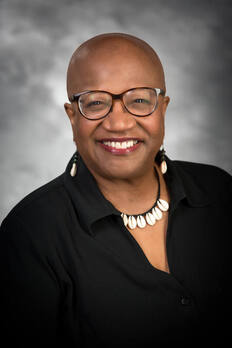
Connie McKoy is Marion Stedman Covington Distinguished Professor and Director of Undergraduate Studies in the UNCG School of Music, where she teaches undergraduate and graduate music education courses. She holds a BM in Music Education from the Oberlin Conservatory of Music and MM and PhD degrees from UNCG. She has 19 years of public-school teaching experience as a general music teacher, choral director, and band assistant.
Her research, which has been presented nationally and internationally, has focused on children’s world music preferences, music teachers’ cross-cultural competence, and culturally responsive pedagogy in music. Her work has been published in The Journal of Research in Music Education, The Bulletin of the Council for Research in Music Education, Update: Applications of Research in Music Education, Music Education Research, The Journal of Music Teacher Education, and the International Journal of Music Education. She has served on the editorial review committees of the NAfME publications The Music Educators Journal and Update: Applications of Research in Music Education and is currently on the editorial review committee for Qualitative Research in Music Education.
In 2017 & 2019, she participated in the Yale Symposium on Music in Schools and contributed to the 2017 symposium document, Declaration on Equity in Music for City Students. Dr. McKoy is co-author of Culturally Responsive Teaching in Music Education: From Understanding to Application, published by Routledge. She is an active clinician for state, regional, and national music education organizations, is certified in Level III of Orff Schulwerk pedagogy and has taught recorder for Levels I-III. She is a past president of the North Carolina Music Educators Association and is a Past Chair of the Society for Music Teacher Education.
Her research, which has been presented nationally and internationally, has focused on children’s world music preferences, music teachers’ cross-cultural competence, and culturally responsive pedagogy in music. Her work has been published in The Journal of Research in Music Education, The Bulletin of the Council for Research in Music Education, Update: Applications of Research in Music Education, Music Education Research, The Journal of Music Teacher Education, and the International Journal of Music Education. She has served on the editorial review committees of the NAfME publications The Music Educators Journal and Update: Applications of Research in Music Education and is currently on the editorial review committee for Qualitative Research in Music Education.
In 2017 & 2019, she participated in the Yale Symposium on Music in Schools and contributed to the 2017 symposium document, Declaration on Equity in Music for City Students. Dr. McKoy is co-author of Culturally Responsive Teaching in Music Education: From Understanding to Application, published by Routledge. She is an active clinician for state, regional, and national music education organizations, is certified in Level III of Orff Schulwerk pedagogy and has taught recorder for Levels I-III. She is a past president of the North Carolina Music Educators Association and is a Past Chair of the Society for Music Teacher Education.

Jennifer Mellizo has been teaching K-8th grade music at the University of Wyoming Laboratory School in Laramie, WY for the past 20 years. She was named a Wyoming Arch Coal Teacher of the Year in 2014, the Albany County School District Teacher of the Year in 2016, and recently received a Fulbright U.S. Scholar Research Award to Spain. In addition to her research and teaching duties, Dr. Mellizo is the music curriculum specialist for her school district and a curriculum developer for Smithsonian Folkways Recordings.
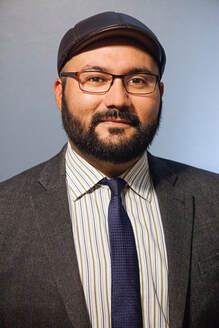
Christopher Mena is a PhD candidate with research interest in the racial, ethnic, cultural identity development of Mexican American students participating in school music ensembles. Additionally, he is interested in (and has published articles pertaining to) Ethnic Studies, Native American Education, and World Music Pedagogy. He has extensive international work experience with a current focus on helping to develop music teaching artist programs in Myanmar. He is a co-author of the 2018 book World Music Pedagogy Vol. IV: Instrumental Music Education.
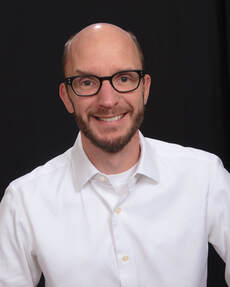
J. Christopher Roberts is Lecturer and Coordinator of Music Teacher Preparation at the University of Washington. He holds degrees from Swarthmore College (B.A., History) and the University of Washington (M.A., Ph.D., Music Education), with research and clinical interests in children’s musical cultures, world music education, and the nature of children’s interest in music. Recent articles have appeared in publications including Bulletin of the Council for Research in Music Education (2017), Update (2017), British Journal of Music Education (2016), Journal of Research in Music Education (2013; 2015), and Oxford Handbook of Social Justice in Music Education (2015). An elementary music teacher for 20 years, he currently directs the Kodály Levels Program of Seattle.
